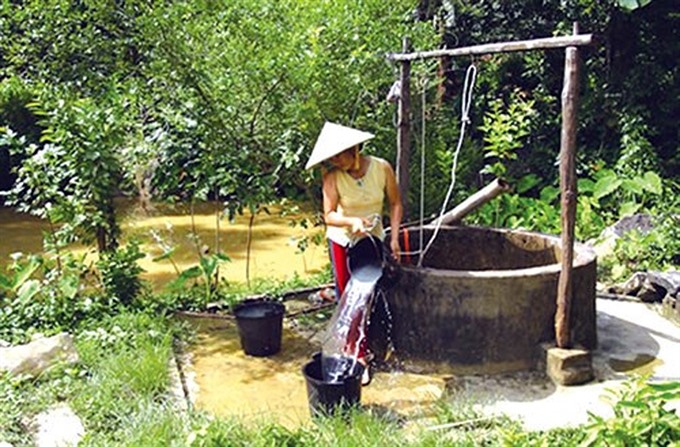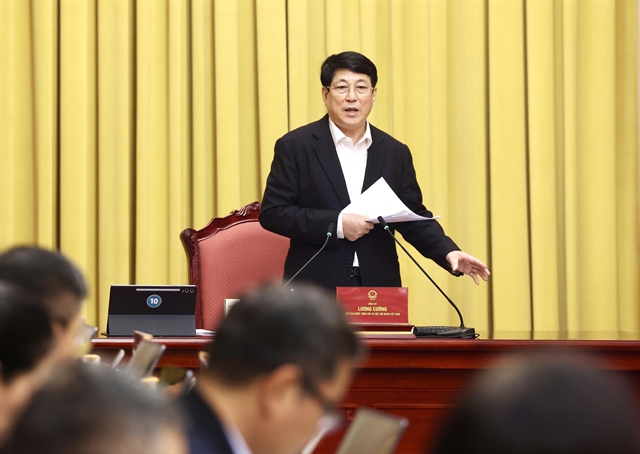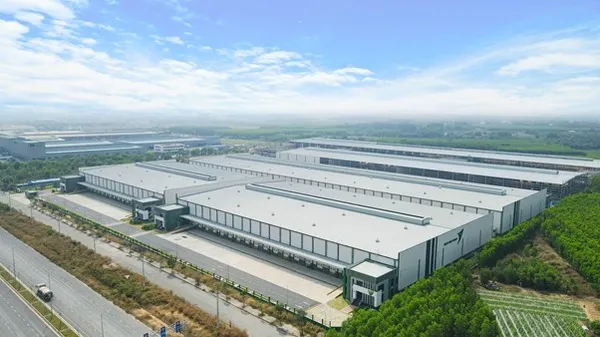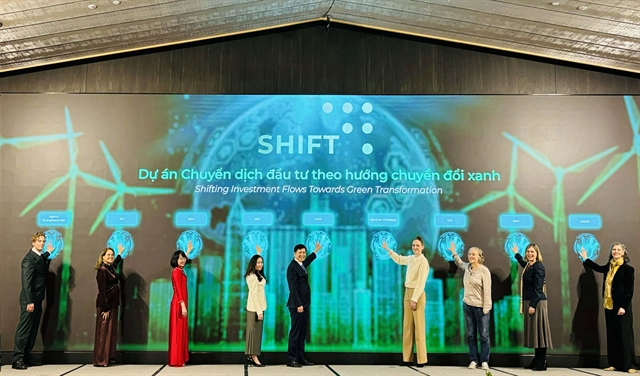 |
| Many households in HCM City use well water although tap water is available at their homes. — Photo baogiaothong.vn |
Viet Nam News HCM CITY — Thousands of families in HCM City’s suburban areas refuse to use tap water, prefer well water despite of increasing risks caused by ground water use and exploitation.
The Sài Gòn Water Corporation (SAWACO) early last week reported that almost 88,300 water clocks installed at local residences were unused or the families - accounting for about seven per cent of the company’s clients, did not use tap water at all.
Around 10 per cent of the company clients use a mere one to four cubic metres of water a month. Hóc Môn District has the highest number of households not using tap water with 6,766 out of 27,030.
People, especially in districts 9, Hóc Môn, Củ Chi, Gò Vấp, and Bình Tân do not use tap water for a range of reasons. For example, they said it has a fishy smell, or they were used to well water, which is much cheaper than tap water, as they just paid few million Vietnamese đồng to dig a well.
A resident in District 12 told Tuổi trẻ (Youth) newspaper that previously they did not have tap water to use but now, with the increased availability of tap water, they use both tap water and well water.
“We use tap water for cooking, drinking and bathing, while well water is used for other activities like watering plants or washing vehicles,” he said.
Head of the water resource division under the city’s Natural Resources and Environment Department, Nguyễn Văn Ngà, said that now there were 256,453 wells in the city, of which, 256,131 were used by households and 322 industrial wells served production.
The over-exploitation of underground water poses risks of land depression and groundwater pollution.
Since 2007, the city People’s Committee has restricted groundwater exploitation in the city but has so far failed to curb the problem.
SAWACO has been expanding water supply networks, with more water pipes and water clocks being installed for local households.
However, in 2013, about 57,000 water clocks were reportedly going unused. The number has now increased to nearly 88,300.
Ngà, from the water resource division, said that the city’s environment department would complete a survey on underground water by the end of this year, which is expected to pave the way for a proposal on reduced exploitation of ground water.
Bùi Thanh Giang, vice director general of SAWACO, warned about a possible intrusion of salt water to local underground water sources.
“As an impact of climate change, rising sea water levels are becoming more and more severe. When ground water is pumped up, salt water could intrude into it,” Giang said.
He said that the unused water clocks were also wasted, because the water clocks could have been installed for other people who wanted to use tap water.
Earlier this month, at a meeting to announce tap water supply to all households in District 12, Vice Chairman of the municipal People’s Committee Lê Văn Khoa urged people to use tap water instead of well water for cooking to avoid health risks.
The move followed a report by the HCM City Preventive Health Centre after testing 197 well-water samples. Most of the samples were taken from districts 12, Gò Vấp, Tân Bình, Tân Phú, and Hóc Môn.
Its tests so far this year found that 42 per cent of the samples had low pH values – indicating acidity – while the acceptable range set by the Ministry of Health is 6.0-8.5.
Another 9.14 per cent had ammonia content exceeding the standard of 3 milligrammes per litre. A high concentration of iron was found in 2.03 per cent of the samples, most of them obtained from districts 12 and Hóc Môn.
More than 4 per cent was found to contain E.coli and coliform bacteria in excess of the standard of 20 colonies per 100ml.
The centre’s doctors said water with a low pH value causes itching and badly damages tooth enamel.
The ammonia in groundwater turns into nitrate when it comes into contact with oxygen, and leads to methemoglobin when it enters the body, they said.
Nitrate and nitrite associated with amino acids in the body creates nitrosamine, which causes cancer, they said.
As of July this year 91.13 per cent of all households in the city were provided with tap water. — VNS
 Society
Society






.jpg)